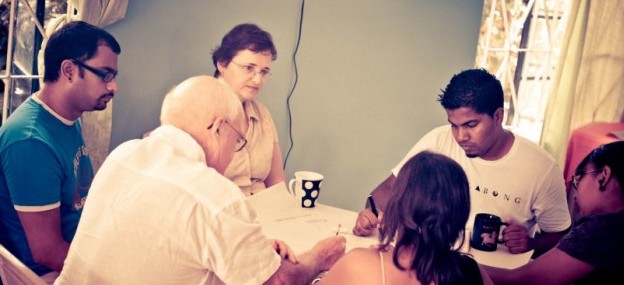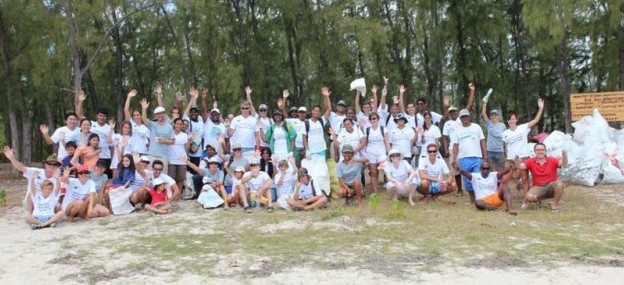Dialogue and Deliberation is at the heart of community building and social change. The process begins with an inclusive invitation, reaching across disciplines and divides to draw people from all parts of the community to work together on an issue of shared concern. Next, small facilitated groups meet simultaneously across the company, community or country. They learn about and consider the issue (or opportunity) from many perspectives and explore possible strategies and solutions. Then, moving to action, people connect the ideas from the dialogue to outcomes that range from changes in an individual’s attitudes, behaviors, and beliefs, to new projects and collaborations, to institutional and policy change.
Across the world, thousands of communities have organized small scale to large-scale public dialogues on a range of issues including; youth issues, race relations, education reform, neighborhood development, local governance, national energy policy, poverty reduction, growth and development, and others. In these efforts, good facilitators are essential to the quality of these deliberative discussions. They can be paid professionals or skilled volunteers, who are willing to commit their time to create a neutral space to engage their peers in productive, small-group, public or private discussions. Special training, coaching and ongoing support help them build and develop their skills and expertise.
Dialogue and Deliberations (D&D) initiatives can take many forms. Some take place over several weeks or months, beginning and ending with large-group meetings that are followed by strategic work and action plans. Sometimes, dialogues are folded into a one-day forum or summit to address a community issue. One event or one day is seldom sufficient to complete a process, but a series of in person events plus follow up can and does lead to concrete action and results.
Some groups and communities hold dialogue circles on the same topic over a number of months and years. In others, a community organization or Convener serves as the institutional “home” for dialogue-to-change efforts and helps the group or community address a range of issues over time. Private Industry as well as Governments and Public Officials can also use these principles and practices to bring more voices into ongoing work, consensus-building and decision-making.
Guiding Principles for Stakeholder Engagement and Public Dialogue:
- Involve everyone: Demonstrate that the whole community (or all stakeholders) are welcome and needed.
- Embrace diversity: Proactively reach out to all kinds of people.
- Share knowledge, resources, power, and decision making.
- Combine dialogue and deliberation: Create transparent discussion that builds understanding and explores a range of solutions.
- Connect deliberative dialogue to social, environmental and/or policy change.
- Build capacity with the aim of having deliberative dialogue as the norm for how people and groups connect and get things done.
Author: Kimberly King copyright 2013






